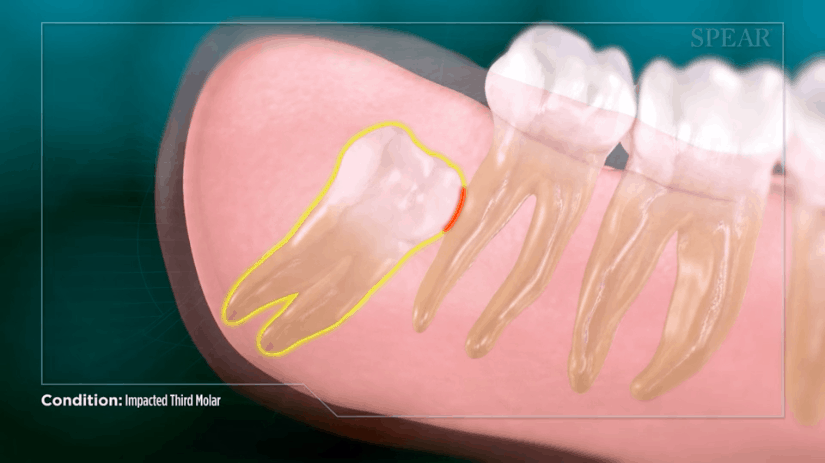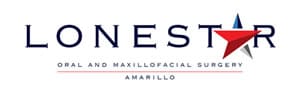Wisdom Teeth

Dr. Atkins is a highly trained oral surgeon who strives to provide you with the highest quality care in a safe, comfortable environment. Dr. Atkins has received extensive training in the fields of medicine and oral and maxillofacial surgery. He has expertise in a variety of different procedures involving the teeth, mouth and face. Removal of wisdom teeth is one of the most common procedures he performs.
Wisdom Teeth
Your wisdom teeth, also referred to as third molars, are the teeth in the very back of your mouth. They are the last to erupt, often emerging anywhere in your late teens to early twenties. For many, these teeth present a problem.

What are Impacted Wisdom Teeth?
An impacted wisdom tooth is one that becomes blocked as it attempts to erupt through the gums. This frequently occurs because there is not enough room in the mouth to accommodate all 32 teeth. Wisdom teeth may also become impacted because they are tilted or not growing in appropriately. There are several different types of impaction:
- Soft Tissue Impaction: The tooth lacks sufficient space for the gum tissue to retract and allow proper cleaning of the area.
- Partial Bony Impaction: The tooth can only partially erupt through the gums. This can present problems with oral hygiene and may result in other medical issues.
- Complete Bony Impaction: Your jaw has no space for the tooth to erupt, so it stays embedded within the bone. This type of impaction requires a more in-depth surgical procedure to have the wisdom teeth removed.
Issues Caused by Impacted Third Molars
Impacted teeth can result in several issues:
- Infections: A partially erupted wisdom tooth can lead to infections. This is because the space is difficult to clean, therefore bacteria build up around it.
- Gum Disease: If bacteria travel below the gum line, it can cause an infection in the surrounding teeth and jawbone. Gum disease can weaken your bone and cause loose teeth and tooth loss.
- Cysts: Cysts are fluid filled sacs that can develop in the jawbone. They can grow and destroy the bone.
- Dental Crowding and Periodontal Disease: Impacted teeth can grow into their neighboring teeth. This can cause dental disease in the adjacent teeth and can possibly lead to shifting and moving of the neighboring teeth.
Symptoms of an Impacted Wisdom Tooth
Symptoms of impacted wisdom teeth include:
- Swelling and pain at the back of your mouth
- Difficulty and pain when opening your mouth
- Bad breath or a foul taste in your mouth
While most people experience some of the above symptoms, there is also a possibility that you won’t experience any at all. If you suspect your wisdom teeth are impacted, Dr. Atkins will be able to diagnose it with an oral exam and dental x-rays. He can then diagnose your condition and recommend the appropriate treatment.
Do I Need an Extraction?
In many cases, wisdom tooth removal in your late teens or early twenties is the best course of action. However, in certain circumstances, you may not need them extracted. Dr. Atkins will give you a complete oral health examination to determine whether or not tooth removal is right for you.
Frequently Asked Questions
How long will it take to recover after wisdom teeth surgery?
The recovery period usually lasts around 48-72 hours. After these times, most patients are generally back to school or work. After the first 72 hours it is normal to still experience some minor discomfort/pain from the surgical sites. For most patients, 48-72 hours is recommended for recovery. If the patient has a physically strenuous job or is returning to sports or physical activities, additional recovery times may be needed.
Can I eat after surgery?
It is recommended to start with small sips of water one hour after the procedure. If water is tolerated, the patient can advance to a soft diet. Soft diet suggested foods are ice cream, yogurt, mashed potatoes, eggs, soup, and applesauce. Foods to avoid include chips, rice, nuts, and popcorn, as they can easily get stuck in extraction sites.
When do I start taking my prescribed medications after surgery?
Most of the medications (pain medications and antibiotics) can be started the same day as the procedure. If post-operative steroids are prescribed, they should be started the day after the procedure.
How long do I need to not eat and drink before my surgery?
For most patients, an 8 hour fasting period is sufficient prior to being sedated. You should not eat or drink for eight hours before being sedated, unless otherwise instructed by the doctor.
Do I need a driver if I am being sedated?
Every patient undergoing sedation must have a driver that can stay on the premises during the procedure. No patient will be able to leave the clinic without a pre-arranged driver. A patient will not be able to go home with a ride service (Uber, Lyft, cab) after sedation.
